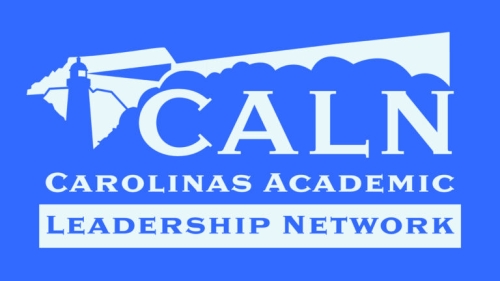Carolina Journal: Carolinas united for academic excellence
This op-ed was published in the Carolina Journal on July 25, 2024. It is written by Bryce Fiedler, director of the Carolinas Academic Leadership Network, for which Palmetto Promise is a partner organization.
It’s been over 300 years since the colony of Carolina was officially divided, establishing distinct North and South Carolina colonies. Today, as separate states, the two share plenty of differences across politics, government, and culture. But when it comes to education, both have something deeply important in common: the need to improve student achievement and classroom success.
In terms of reading proficiency, the percentage of eighth-grade students in North Carolina deemed “on track to be prepared for career and college” declined by nearly 15 points from 2018-19 to 2022-23. Similarly, math performance saw a nearly seven-point drop over the same period. While year-over-year achievement is improving, math and reading rates sit far behind their pre-COVID levels.
In South Carolina, the situation is even more urgent. Just over half of eighth graders meet or exceed expectations in English and Language Arts, according to recent state testing data, while less than one third meet or exceed expectations in math. The average state SAT score, meanwhile, lags 20 points behind the national average.
Facing these education challenges requires bold, collaborative action. It’s for this reason that the Carolinas Academic Leadership Network (CALN) was formed.
CALN is a joint initiative of three think tanks — the John Locke Foundation of North Carolina, and the SC Policy Council and Palmetto Promise Institute of South Carolina. It supports school-board members in North and South Carolina with professional development, first-in-class resources, and educational opportunities designed to elevate school-board governance and foster academic excellence.
CALN’s mission, centered on empowering local leaders, reflects certain truths about our education system. Among these is the critical role that school-board members play in shaping instruction. Of all public officials, none have a greater impact on education policy and, consequently, student outcomes than these local leaders. They deserve the best tools and resources available to effectively serve students and their communities.
It is also true that school-board service is demanding, requiring knowledge in many areas of governance. Trustees are tasked with approving annual budgets; hiring superintendents and other personnel; setting academic expectations; making curriculum decisions; representing parent and community interests; and, most importantly, being champions for student achievement. To call this role important would be an understatement.
Fed up with school closures seen during the pandemic, many parents decided to run for school board and have been elected in recent years. This new generation of leaders is fiercely dedicated to serving students and improving education. However, many have never served on a government board or held public office. Without adequate support, there is a real fear that these education advocates may become overwhelmed or burn out.
Veteran members are just as prone to these concerns. From shifts in technology to evolving curriculum standards, the K-12 landscape is far from static. Continual education and access to fresh resources are crucial for all school-board members, whether newly elected or seasoned.
Recognizing this, CALN launched last year and immediately got to work. Over the past 12 months, our in-person events have connected dozens of school board leaders with experts in governance and academics for hands-on training, while even more have joined us for online sessions covering trends in education and legislative updates from North and South Carolina.
One big education shakeup is South Carolina’s decision to ban cell phones during the school day, a policy all local districts must implement. This made for a timely discussion topic at CALN’s recent seminar in Columbia, South Carolina, which I had the privilege to lead. We talked through policy-enforcement options, approaches taken by other states, and the potential academic benefits of the new rule.
More recently, trustees got a crash course in budgeting led by Aaron Beaulieu, a former chief finance officer with Durham Public Schools with 30 years of industry experience. He covered vital topics such as budgeting best practices, strategic planning, and shared tools and techniques that can help district leaders increase efficiency.
CALN is also a platform where leaders can discuss challenges in their districts, sharing ideas and potential solutions. This spring, we hosted a series of panels with veteran school board members to discuss their experiences in office, successful governance habits, and advice for candidates preparing for the job.
The coming education revolution won’t be easy, and it won’t happen overnight. But I can’t think of anything more important for the future. By equipping local leaders with the tools to serve students at the highest level, there is a real opportunity to transform our schools and ensure every child receives the education they deserve.





